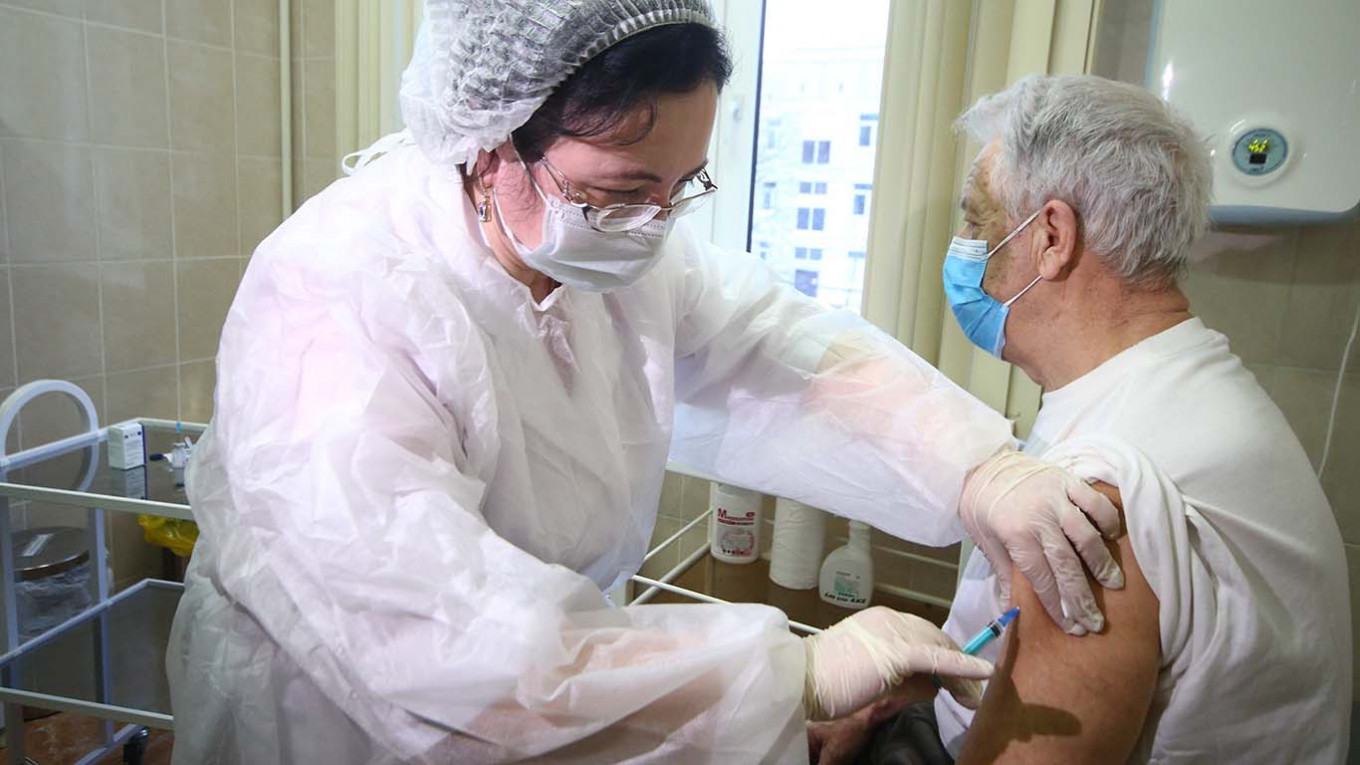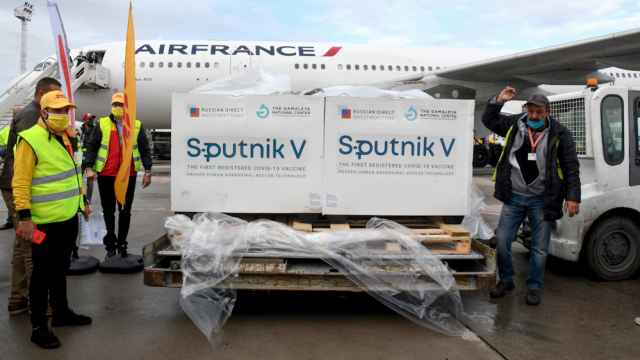Argentina’s health ministry has said Russia’s Sputnik V vaccine is more effective at preventing coronavirus infections than its Chinese and Indian competitors, the South American country’s media reported Wednesday.
Argentina has so far distributed the first doses of Sputnik V among 2.6 million recipients, China’s Sinopharm among 1.2 million and India’s Covishield among more than half a million, according to the Telam news agency.
Argentina’s health ministry reported that 0.27% of Sputnik V recipients contracted Covid-19 two weeks after the first dose, according to Telam. That compares to 0.49% of Sinopharm and 0.46% of Covishield first-dose recipients.
Covishield is the local Indian brand name for the vaccine developed by AstraZeneca in Britain. It is produced at the Serum Institute of India.
“This is a surveillance evaluation,” the health ministry’s communicable disease control director Juan Manuel Castelli was quoted as saying at a press briefing. “These are auspicious results, but you have to be cautious.”
“The vaccine clearly decreases the potential occurrence of complications, hospitalizations and deaths but does not completely prevent the disease,” Castelli was quoted as saying.
Argentina’s research council this week published a report showing that 94% of Sputnik V first-dose recipients produced specific antibodies. The report, involving 288 participants and overseen by the country’s science ministry, said 100% of two-dose recipients had developed specific antibodies.
Argentina, the first Latin American country to authorize Sputnik V in December amid questions among international experts over its safety, is among several countries battling a renewed spike in Covid-19 cases.
A total of 60 countries have approved Sputnik V, with India the latest country to authorize Russia’s jab this week.
Research published in The Lancet medical journal in February showed Sputnik V to be 91.6% effective, though developers have acknowledged it to be less effective against the South African variant.
Russia has been one of the world’s most-affected countries by the virus and has recorded at least 422,000 excess deaths since the start of the pandemic.
A Message from The Moscow Times:
Dear readers,
We are facing unprecedented challenges. Russia's Prosecutor General's Office has designated The Moscow Times as an "undesirable" organization, criminalizing our work and putting our staff at risk of prosecution. This follows our earlier unjust labeling as a "foreign agent."
These actions are direct attempts to silence independent journalism in Russia. The authorities claim our work "discredits the decisions of the Russian leadership." We see things differently: we strive to provide accurate, unbiased reporting on Russia.
We, the journalists of The Moscow Times, refuse to be silenced. But to continue our work, we need your help.
Your support, no matter how small, makes a world of difference. If you can, please support us monthly starting from just $2. It's quick to set up, and every contribution makes a significant impact.
By supporting The Moscow Times, you're defending open, independent journalism in the face of repression. Thank you for standing with us.
Remind me later.






